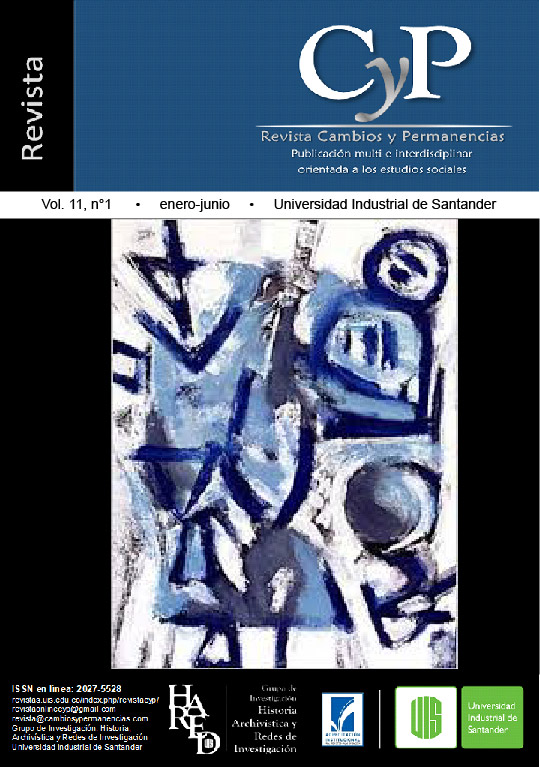Female subjectivity: folds and ritornelles in the construction of territoriality in woman football spectators
Published 2020-06-30
Keywords
- Woman,
- football,
- Territory,
- Social Barrismo and Subjectivity
How to Cite
Abstract
The concept of territory, within the framework of social studies and particularly that of geography and philosophy, has developed tools to think about the folds, ritornelles (music), differences and territorialities of subjects that are members of social groups, and their conformation by gender, ethnicity and race. The following writing will articulate in a first part, the ways of understanding the construction of the territory in women members of the social groups of the barrismo (hereinafter GSB); in a second part, a debate will be held regarding the conformations of female subjectivities in women's territories and their contribution in terms of the construction and articulation as members of the social groups of the barrismo; in a third part, being a woman and her distribution as barrista subjects are related. To close the article, an approach is made to the ethnographic methodologies of the cartography of desire that seek to make a possible approach to what is proposed in the article to generate a discussion of the link between the feminine and the social groups of barrismo.
Downloads
References
Butler, J. (2001). El género en disputa: Feminismo y la subversión de la identidad. España: Paidós.
Deleuze, G., y Guattari, F. (2002). Mil Mesetas. Capitalismo y esquizofrenia. Valencia, España: Pretextos.
Foucault, M. (1999). Estética, ética y hermenéutica (Obras Esenciales. Volumen III). Barcelona, España: Paidós.
Foucault, M. (2009). El gobierno de sí y de los otros: curso en el Collége de France: 1982-1983. Buenos Aires, Argentina: Fondo de Cultura Económica.
Fraser, N. (1997). Ustitia interrupta: reflexiones críticas desde la posición Posts socialista. Bogotá, Colombia: Siglo del Hombre Editores.
Gómez, N., Rojas, A., Suárez, J., Mosquera, W., y Grillo, C. (2013). Construcción de una nueva noción de barras bravas en Colombia a partir de la relación subjetividad y marketing. Bogotá, Colombia: Universidad Cooperativa de Colombia.
Gramsci, A. (1977). Pequeña antología política, libros de confrontación. Barcelona, España: Fontanella.
Guattari, F. (2004). Plan sobre el planeta Capitalismo mundial integrado y revoluciones moleculares. Traficantes e sueños. Madrid, España: Voces Ldas, Petrotolis, Queimada.
Guattari, F., y Rolnik, S. (2005). Micropolítica: Cartografía del Deseo. Traficantes e sueños. Madrid, España: Voces Ldas, Petrotolis, Queimada.
Perea, A. (2016). Presentación Syllabus. Trabajo presentado en el seminario de socialización del Doctorado en Estudios Sociales, Universidad Francisco José de Caldas, Bogotá, Colombia.
Perea, A. (2017). Presentación unidad modular. Trabajo presentado en el seminario de línea de subjetividades, diferencia y género, Universidad Francisco José de Caldas, Bogotá, Colombia.
Piedrahita, C. L. (2017). Presentación seminario de Línea: metodologías de las cartografías del deseo. Trabajo presentado para el doctorado en Estudios Sociales, Universidad Distrital Francisco José de Caldas, Bogotá, Colombia.
Roa-Corredor. J.C. (2015). Deleuze, el pliegue, el ritornelo y la relación arte-territorio. Cuestiones de filosofía, 1(17), 258-27.
Tourain, A, (1991). Los movimientos sociales. Buenos Aires, Argentina: Almogesta.

